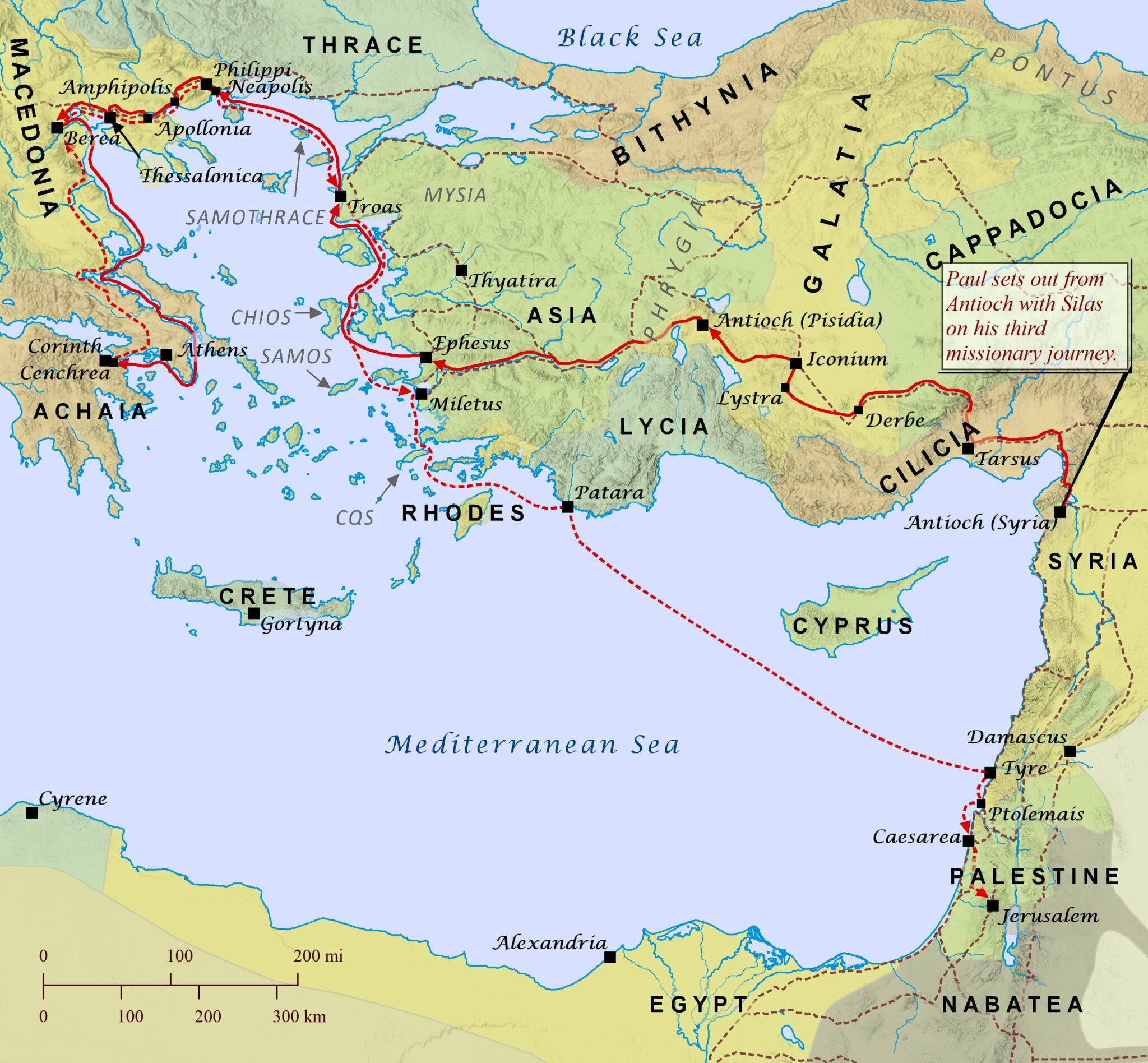Paul prioritized his travel so that he could preach the gospel to those who did not know Christ. He again explains that he had not visited the believers in Rome because he had been preaching the gospel to those who had not heard the gospel.
In all of his travels and throughout his ministry, Paul aspired to preach the gospel, not where Christ was already named, so that I would not build on another man’s foundation (v 20); his focus was on preaching the gospel where it had not yet been heard. Paul mentioned in Romans 1:11-13 that he had wanted to come see the Romans but had not been able to. Part of the reason is that Paul’s first priority was to take the gospel where it had not already gone, not where Christ was already named.
As mentioned in Romans 15:16, this was Paul’s job; he was a minister to the Gentiles, sent to proclaim the gospel of Christ wherever it had not been received.
Paul emphasizes his ministry strategy by quoting Isaiah 52:15—They who had no news of Him shall see, And they who have not heard shall understand (v 21). Paul was going to areas where people had not heard the good news of Christ. He was giving the gospel to those who did not understand the gospel. Because Paul had found many areas where Christ was not known, he opted to delay visiting the believers in Rome to whom he is writing, because his first priority was to take the gospel where it had not already been (Romans 1:8).
Many Gentiles had not heard of the Messiah. The Jews grew up learning about the promised Messiah and reading what we call the Old Testament. This was not true of the Gentiles. Up to this point, God had given His word and promises to the Jews. Here, Paul references back to Isaiah where it was prophesied that those who did not know anything of Christ, the anointed One, would one day see and understand.
As it is written,
“They who had no news of Him shall see,
And they who have not heard shall understand” (v 21).
Paul’s statement As it is written tells us he is quoting from scripture. There were not chapters and verses in the scripture during the first century, but we know this quote as Isaiah 52:15. Paul’s calling from Jesus was to take the gospel to those who had no news of Christ so that they could have faith and be saved, thus fulfilling Isaiah’s prophetic word. For this reason I [Paul] have often been prevented from coming to you (v 22). The reason Paul refers to here is his calling to take the gospel to those who had not heard. Paul would love to see the Roman believers, but his top priority is to preach the gospel to those who have not yet heard it.
Biblical Text
20 And thus I aspired to preach the gospel, not where Christ was already named, so that I would not build on another man’s foundation; 21 but as it is written,
“They who had no news of Him shall see,
And they who have not heard shall understand.”
22 For this reason I have often been prevented from coming to you;
Check out our other commentaries:
-
Ecclesiastes 9:11-12 meaning
Unexpected and unpredictable circumstances are a part of life and often interrupt the predictable flow of events....... -
Matthew 23:15 meaning
In His third woe, Jesus rebukes the scribes and Pharisees for seeking to make converts to enhance their personal following and status....... -
Genesis 12:11-13 meaning
In Egypt, Abram asks his wife to only say she is his sister for fear that the people will kill him and kidnap Sarai because...... -
The Mosaic Covenant: A Conditional Covenant meaning
This covenant is an agreement between God and Israel, adding various conditional promises to the unconditional promises of God. ...... -
Deuteronomy 12:17-19 meaning
Moses warns Israel against eating sacrifices within their gates. This act is to be done before the Suzerain God in the sanctuary as a way......



